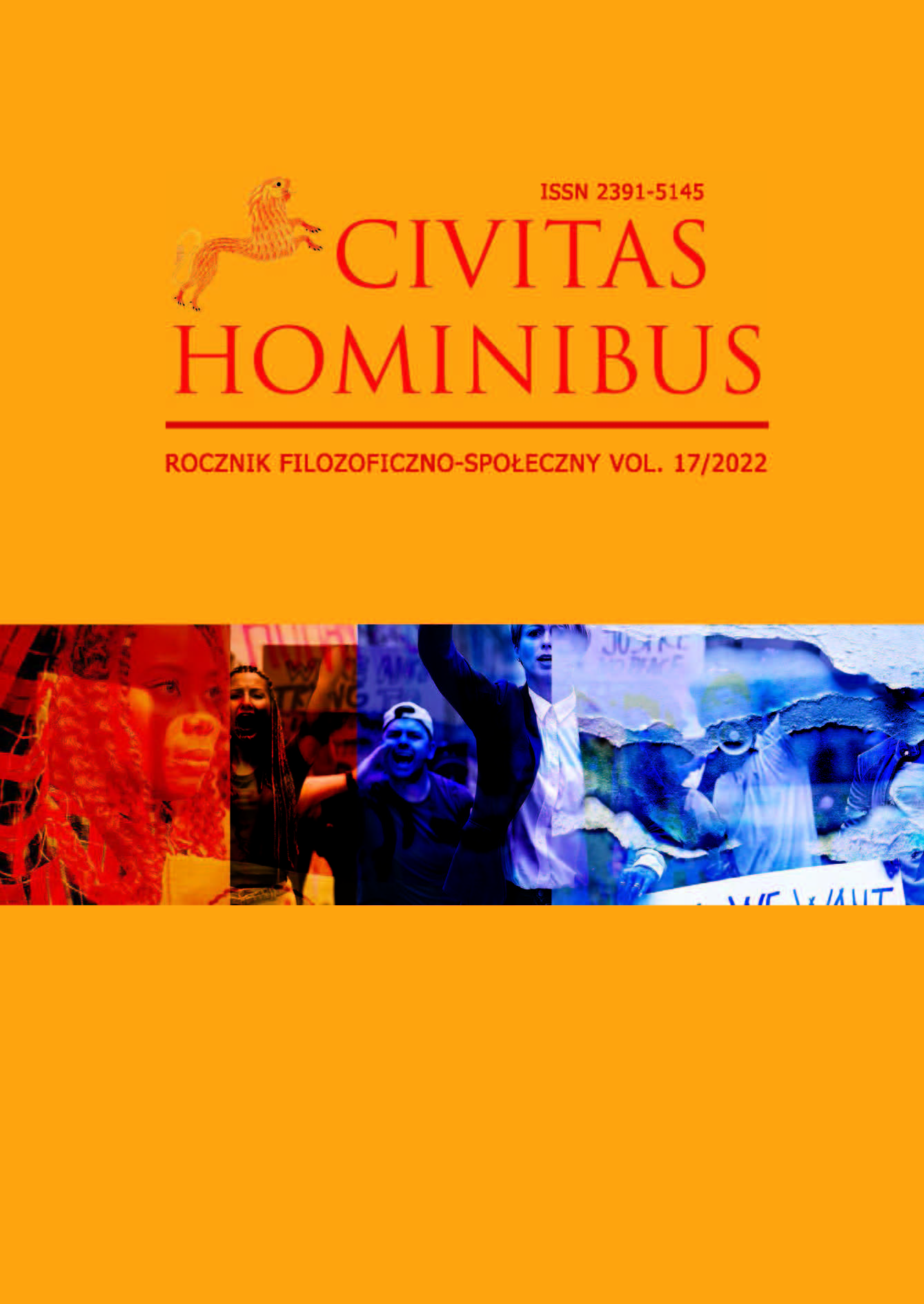Taboos, stereotypes, social conflicts, religion in the perspective of the presence of LGBT motifs in contemporary cinema after the 1969 Stonewall revolution in morals
DOI:
https://doi.org/10.25312/2391-5145.17/2022_11alKeywords:
taboo, stereotypes, religion, homosexuality, LGBT, tolerance, homophobiaAbstract
Modern culture has a unique ability to intervene with the reality around us, reacting with all that is often difficult to explain with “commonplace definitions.” Film has become a powerful medium of information, allowing us to reach often closed areas of sensitivity and dialogue on a completely different level. This article gives an extended analysis of the phenomenon of the presence of LGBT motifs in contemporary cinema after the 1969 Stonewall revolution in morality. Observing how the socio-political discourse towards the aforementioned group has changed over the years, it is noticeable how great a role culture – especially cinematography – has played in the process of breaking down fears and prejudices nurtured for years. For years, a popular view was that described by Yukimo Mishima in The Golden Pagoda regarding the LGBT community: “Since my only pride was that people didn’t understand me, I never felt the need to try to explain to others how I felt. I thought that fate had denied me the ability to see what others saw.” The bold break from social “conventions” undertaken by successive film directors made it possible to set new directions in culture, which unequivocally proved that it was not “fate denied me/us the ability to see what others saw” but the fear, present in people, of stepping outside what we now call the “comfort zone.”
Downloads
References
Awards, https://www.imdb.com/title/tt0118698/awards?ref_=tt_awd [dostęp: 12.06.2022].
Bem S., Męskość, kobiecość. O różnicach wynikających z płci, GWP, Gdańsk 2000.
Ciota, [w:] Słownik języka polskiego PWN, https://sjp.pwn.pl/slowniki/ciota.html [dostęp: 8.06.2022].
Czarnik T., Starożytna filozofia chińska, Wydawnictwo Uniwersytetu Jagiellońskiego, Kraków 2001.
Foucault M., Historia seksualności, PWN, Warszawa 2000.
Haak D., Toksyczna męskość – jak obsesja męskości wpływa na chłopców i mężczyzn, 2020, https://dominikhaak.pl/toksyczna-meskosc-jak-obsesja-meskosci-wplywa-na-chlopcow-imezczyzn/ [dostęp: 23.06.2022].
Haggerty G.E., Gay Histories and Cultures, Taylor & Francis, 2000.
Halperin D.M., One Hundred Years of Homosexuality, Routledge, New York 1990.
Kochanowski J., Od teorii dewiacji do teorii queer, [w:] K. Slany, B. Kowalska, M. Śmietana (red.), Homoseksualizm. Perspektywa interdyscyplinarna, Nomos, Kraków 2005.
Kowalski J.A., Sex-Partner Roles in Homoerotic Relations: An Attempt of Classification, „Journal of Homosexuality” 2016, 63(1).
Legal Information Institute, Don’t ask, don’t tell, 2010, https://www.law.cornell.edu/uscode/text/10/654 [dostęp: 20.06.2022].
LeVay S., Gay, Straight, and the Reason Why: The Science of Sexual Orientation, Oxford University Press, Oxford 2017.
Lew-Starowicz Z., Słownik encyklopedyczny – miłość i seks, Wydawnictwo Europa, Warszawa 1999.
Mayer H., Odmieńcy, „Muza” SA, Warszawa 2005.
Mishima Y., Złota pagoda, Państwowy Instytut Wydawniczy, Warszawa 2017.
Murray R., Images in the Dark: An Encyclopedia of Gay and Lesbian Film and Video, TLA Video Management, Titan Books, 1996.
Nowicka E., Świat człowieka – świat kultury, Wydawnictwo Naukowe PWN, Warszawa 2006.
Piekarski G., O kulturę pamięci milczących i przemilczanych ofiar obozów koncentracyjnych. Rozważania w kontekście praw człowieka, 2019, https://www.academia.edu/39537660/O_kultur%C4%99_pami%C4%99ci_milcz%C4%85cych_i_przemilczanych_ofiar_oboz%C3%B3w_koncentracyjnych_Rozwa%C5%BCania_w_kontek%C5%9Bcie_praw_cz%C5%82owieka [dostęp: 23.06.2022].
Płażewski J., Tajemnica Brokeback Mountain, recenzja filmu, „Cinema Polska” 2006, nr 2.
Płynące wieżowce. Nagrody, https://www.filmweb.pl/film/P%C5%82yn%C4%85ce+wie%C5%BCowce-2013-662167/awards [dostęp: 15.06.2022].
Savin-Williams R.C., Who’s Gay? Does It Matter?, „Current Directions in Psychological Science” 2006, 15(1).
Szczęsny J., Retoryka antyhomoseksualna w Trzeciej Rzeszy, 2013, https://liberte.pl/retoryka---antyhomoseksualna-w-trzeciej-rzeszy/ [dostęp: 23.06.2022].
Tajemnica Brokeback Mountain, https://www.imdb.com/title/tt0388795/awards [dostęp: 10.06.2022].
Tóibín C., Love in a Dark Time, And Other Explorations of Gay Lives and Literature, Scribner, New York 2002.
Walter A., Come Together: The Years of Gay Liberation (1970-73), Gay Men’s Press, 1980.
Downloads
Published
Issue
Section
License
Copyright (c) 2022 Akademia Humanistyczno-Ekonomiczna w Łodzi

This work is licensed under a Creative Commons Attribution-ShareAlike 4.0 International License.

